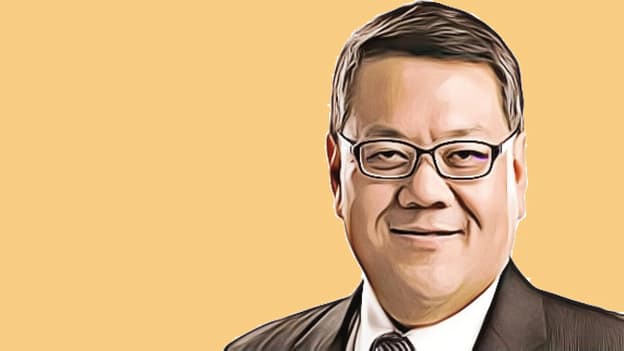Amid digital transformation, both hard and soft skills are needed

Technology and technical skills have come under the spotlight as organizations undergo digital transformation. But in acquiring and developing the needed hard skills, it's still important to dedicate resources to soft skills—mission-critical capabilities such as collaboration and innovation, people management and leadership.
People Matters asked James Lee, Managing Director of Group Human Capital at Great Eastern, how he and his team approach the combined need for hard and soft skills amid rapid digitalization. Great Eastern has been pursuing a digital strategy for several years now, including the development of a digital mindset to match the technology.
With Great Eastern's accelerated digitalization, what changes do you see in the breadth or depth of the soft skills your employees need?
While technology is a great enabler, our employee development journeys must be designed hand-in-hand to support our digitalization strategy. In addition to having the right technology and infrastructure, we identify skills and capabilities ahead of time so as to pro-actively prepare our employees to be future-ready. Building a digital mindset and the right skill sets among our people is a crucial part of our digital transformation journey.
With this is mind, we developed our Future-Ready Framework with seven skill pillars essential in enabling digital transformation and supporting our business growth pillars. These include Digital Business Model & Ecosystems, Technology & Data, Risk & Governance, Customer Centricity, Domain Expertise, The Way We Work, and Leadership in the Digital World.
Our learning and development programs take reference from the Future-Ready Framework to support the development needs of our employees to build the right capabilities as we transform our business. We design customized training programs, learning approaches and developmental pathways for our employees, tailored for different proficiency levels curated for each skill pillar.
Insurance is a field that requires certain specialized technical skills. What's your take on balancing the need for hard skills with the need for soft skills?
We place equal emphasis on both Technical Skills and Generic Skills. Both are needed for our employees and teams to excel at their work and we take a holistic approach in developing our employees.
Following the Future Ready Framework, we identified specific Technical Skills and Competencies (TSCs) for each individual role to ensure the right capabilities for our business are developed and that our employees are equipped to perform their roles well.
We also identified seven Generic Skills and Competencies (GSCs) to guide our employees on important behavioral traits such as customer orientation, decision-making and teamwork to help align our people’s behaviors with the company’s values and foster greater collaboration and innovation across the organization.
Between hiring someone with the soft skills you want, and training someone you already employ in those skills, which would you find more workable? What are some considerations behind that decision?
Both are equally important. Hiring ensures that we continually build and refresh our talent pipeline to augment our existing talent pool. Upskilling our employees and building internal capabilities is also crucial to help our employees develop professionally and be future ready to take on new challenges competently. Together, this will enable us to have a more dynamic and progressive workforce and deliver the right expertise and service to our customers.
Could you share some thoughts on how to better equip managers—and HR professionals—for identifying, assessing, and developing employees' soft skills?
Our generic skills and competencies apply to all employees across the group. The behavioral traits of each GSC at each proficiency level are clearly defined and embedded into our performance management framework.
Our people manager programs are curated to equip our managers in their understanding of the GSCs and how they can exhibit the associated behaviors to be role models for their teams. Development programs targeted at the various GSCs are also in place to support employees in enhancing their skills or closing the gaps.
On the hiring front, we partner with our people managers to identify candidates who exhibit or have the potential to embrace the GSCs, right from the start. We will soon be launching an AI-enabled platform where candidates will be assessed on cognitive ability as well as certain role-specific attributes which align back to our GSCs—the tool assesses indicators such as body language and verbal responses.
Could you share a bit about how you have digitalized L&D? What are your thoughts on leveraging that technology to help with developing soft skills?
Learning and development is a key area for us. We have invested in a Learning Management System (LMS) to improve the learning journey for our employees. The LMS integration with the various HR modules facilitates data analysis that can support us in uncovering gaps and delivering personalized and role-based learning recommendations, based on the needs of our business. At the same time, it allows managers to monitor and view the developmental gaps of their teams and individuals via dashboards. Competency pathways are also integrated within the system to allow employees to build their skill sets that are aligned with their career aspirations.
The LMS has also been used to support the delivery of our training in generic skills and competencies. We have already rolled out our first GSC interactive e-learning module, which guides how employees should behave to achieve organizational outcomes. This e-learning module features employees narrating real-life everyday scenarios which demonstrates the actualization of their behavior.




